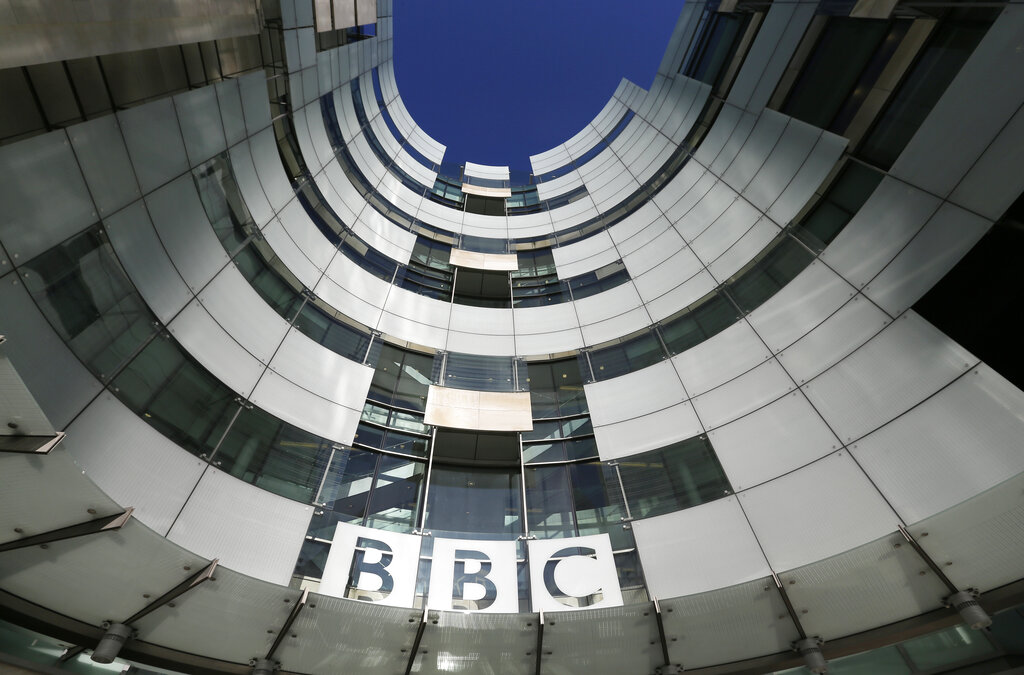President Donald Trump’s latest confrontation with the media cost top BBC director Tim Davie and head of news Deborah Turness their jobs this month. The top-ranking British broadcast executives resigned on Nov. 9, after the leak of an internal report that criticized the network’s election-eve documentary about the president. The report accused the BBC of editing Trump’s Jan. 6, 2021, speech on the National Mall to make it appear that he urged supporters to riot at the U.S. Capitol by splicing together clips from Trump’s speech. In the actual speech, the spliced-together comments were separated by nearly 50 minutes.
Trump has threatened to sue the BBC over the documentary, following his $16 million settlement with CBS News’ parent for allegedly deceptive editing of a 60 Minutes interview with Democratic presidential nominee Kamala Harris. On Nov. 13, the network apologized to Trump but said it would not pay any compensation for the documentary.
For insight on the ethical implications of the two incidents, EJI senior advisor Alison Frankel spoke with NYU adjunct journalism professor Joe Peyronnin, a longtime television news executive who spent 40 years at CBS News, Fox News and Telemundo/NBC News.
This interview has been edited for length and clarity.
Alison: First, I want to ask you about the BBC incident and whether you thought the resignations were justified by the editing that supposedly took place.
Joe: I think the two executives did what they thought they had to do. There clearly is a controversy over how the [speech] was handled and edited.
…
The net effect is, I felt that what was on the air that was used of Trump was edited incorrectly and was misleading. And therefore, that brings a lot of negative light to the BBC, of course, not so much from the United States, but for the viewers in Great Britain, and it undermines the credibility, potentially, of the BBC.
Alison: As a longtime television journalist and executive, how much leeway do you think broadcast journalists have in editing a long speech?
Joe: How do you shoot a story? How do you shoot an interview? How do you edit an interview?
…
Let’s take it to editing an interview. If a Kamala Harris interview runs a minute and 20 seconds…you edit it down.
So you edit down the Kamala Harrison interview, and the criteria is: number one, whatever you edit has to fairly and accurately represent what she said, the point she was making. Number two, you’re not allowed to take things like part of her interview there, and then later, she addresses the question again and edit that, so it can change the meaning, or potentially change the meaning, or mislead the viewer, because she may come around and say something slightly different, which may not make it look so embarrassing.
So you’re not allowed to do all that. And you’re not allowed to tell the interview subject what the questions are in advance … because you don’t want anybody preparing for questions.
When you take a speech or a raw material of anybody speaking, the goal is to edit [so you] fairly and accurately represent what the person’s message was. Let’s take an incident like President Trump on Capitol Hill… You’re not supposed to take something from one part and put it together with something from another part, which changes the meaning of what happened.
The onus is on the journalist, and the person who edits it, and, in fact, that onus is to always be fair and to avoid editing improperly. There are rules in place. In the case of the [speech] I just mentioned about Trump, they might have said, at the beginning, this sound bite, and then they could have said a little bit later, “He tried to cheer the crowd on,” and then used the [second] soundbite.
Alison: If you insert the words, “later in the speech,” does [the editing] then become okay?
Joe: At least that is an attempt to fairly represent what happened….Everything comes back to fairness.
…
I also know that the BBC has some mechanism, so my question is, did they go through a standards process? Did [standards] people screen the documentary?
That’s essential. You screen the documentary, and then you raise questions not only about the editorial content, but about the production that went into it. And you thoroughly vet that before you air it.
…
Ultimately, for journalists, the currency they have is credibility. And credibility, ultimately, will affect viewership because if people don’t trust you, they’re not gonna watch you.
Alison: I assume, with your background and your wife’s background [Peyronnin’s wife, Susan Zirinsky, was president of CBS News until 2021], that you closely followed Trump’s accusations after 60 Minutes ran an interview with Kamala Harris during the presidential campaign. Did you think his complaints were justified?
Joe: No. So let me let me cut to the chase on this…If you look at the whole interview, if you also look at the transcript, then you know that [Harris’s] answer to the specific question about Israel was a minute and 20 seconds. You’re not going to use a minute and 20 seconds of Kamala Harris. In an interview, you’re going to use something shorter, but you want to use something that accurately represents what she said in a minute and 20 seconds. And that’s what they did. They edited down something that accurately represented what she said.
…
Conservatives told me, “What they did was cut it down to 20 seconds so she’d look better.” And I would say, “Everybody edits sound. You’re not going to run a whole soundbite.” If you ran everything everybody said, in every interview, we’d have two hour pieces. … And the question is, does [the clip] fairly represent her answer? And the [Harris] word salad allegation is not what we were dealing with. What we were dealing with is Israel, right? So there is absolutely no grounds, in my view. It shouldn’t have blown up the way it did.
Alison: Can I just play devil’s advocate for a second? There is a lot of power in the editing process, though, and isn’t it possible to contend that television and radio journalists – and print journalists – can edit in a way that either makes their subject look better or worse?
Joe: Wait a second. Stop. Stop. I’m talking about journalists who act professionally according to standards.
Alison: Right. But Trump’s argument is that the journalists were biased.
Joe: This is a whole different argument. The question I’m answering is, “Was it misrepresentative? And did it mislead, and did it provide an opportunity for Kamala Harris to win the election?” And all of that is false. This wasn’t misleading, it wasn’t misedited and it didn’t provide an opportunity.…It was all done in good faith. It went through levels of standards, and the piece was approved.
…
If they’re biased, show me examples where they’re biased. Please, give me some examples. Where was CBS News, in this case, where were [they] biased? Just give me some examples….Show me one thing, something that legitimatizes your claim. Something that proves your point. This wasn’t one.
Now, what made it difficult or wrong, I think, is that [after Trump raised accusations about the editing process], they just simply said, ‘We’re not guilty.
See you later,” instead of engaging. At the very beginning, they could have said, “Here’s the transcript. We’re putting it out to the public. Let the public be the judge.”
And if you look at the whole thing, you say, “Well, I guess you could have edited differently, but basically, what they have represents what she said.”
Alison: The big closing question is, do you think Donald Trump has forever changed how broadcast journalism will be viewed by the public? Has he created skepticism in the mind of the public about how journalists do their jobs?
Joe: The bottom line is that I think Donald Trump has exploited the situation, and that he speaks to his audience, and his audience doesn’t like the news media anyway.
…
Have CBS and the BBC and ABC made mistakes? Has The New York Times made mistakes? Has The Wall Street Journal? Yes, everybody makes mistakes. But I think for the most part, Donald Trump saw that, and he learned from Roy Cohn, the best in the business at the time, [that] if you have a point of view, you just keep saying it. It can be a lie. But you just keep saying it, and ultimately, it becomes true.
…
[Trump] saw an opportunity. And he attacks the press, and there is a widespread view that the press is biased and unfair, and the press has made – everybody has made – mistakes, which only helps fuel that story.
That’s why standards and practices are so important. That’s why the highest level of scrutiny and fair, balanced coverage is essential.
…
in the long run, the press was criticized by the Founding Fathers, by Abraham Lincoln.
Everybody has criticized the press. I don’t know. Donald Trump has really caused a lot of problems, and it’s going to be hard, but I think the only thing we can do, and the right thing to do, is to do our jobs as well as we can, according to the highest standards, and hopefully, things will calm down.


